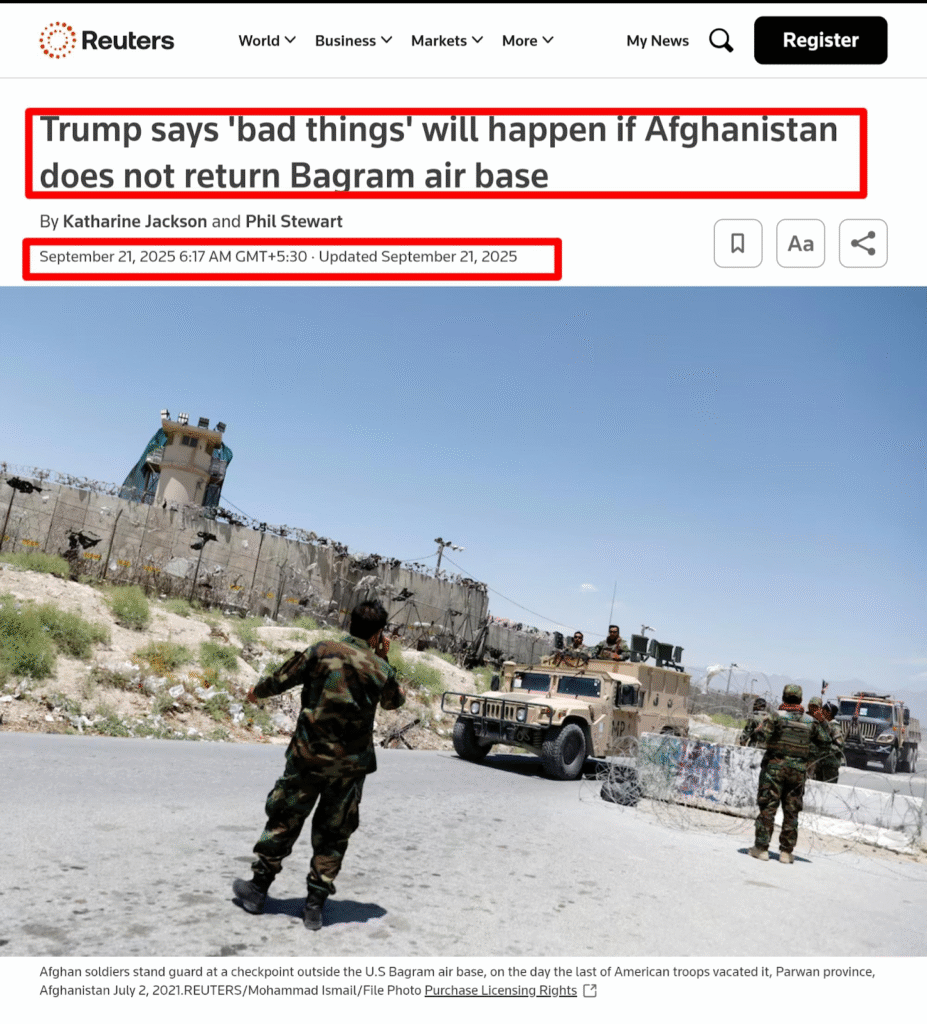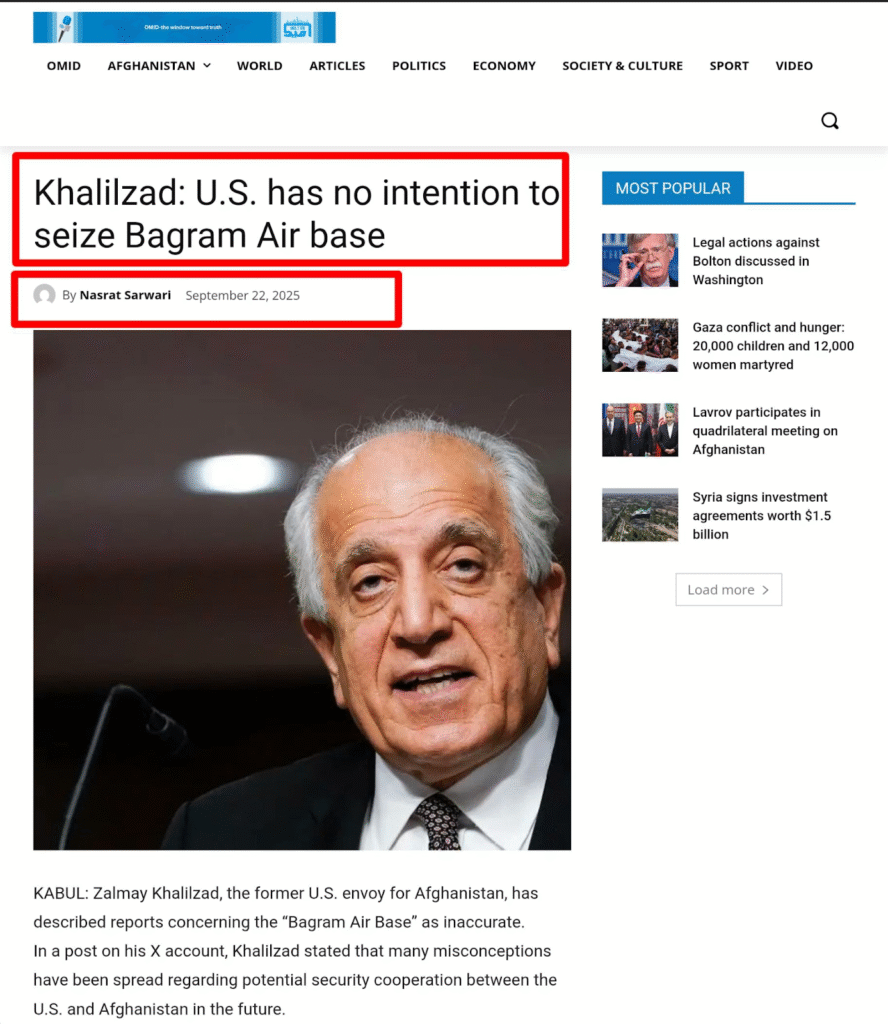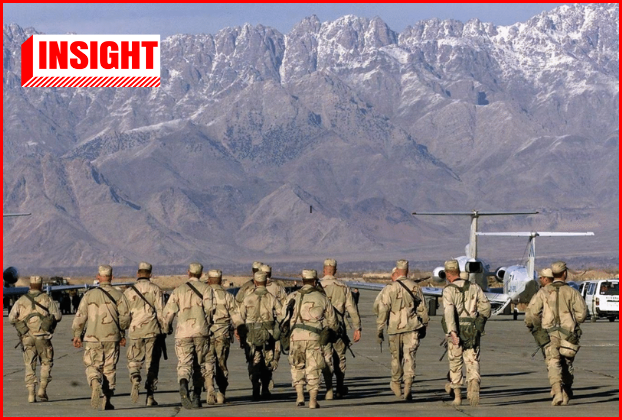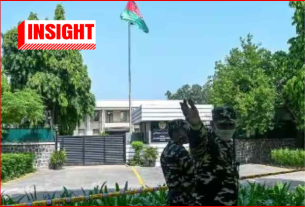
Bagram Air Base in Afghanistan, once the key American military facility in the country, is back in the spotlight. Former U.S. President Donald Trump has raised the issue multiple times during his campaign, recently using stronger language that drew international attention. His comments have prompted questions about why Bagram matters, how the Taliban view the issue, and what the broader regional reactions look like.
Trump’s Comments
On September 21, Trump posted on his social media platform that “if Afghanistan did not return Bagram to those that built it, the United States of America, bad things are going to happen.” Speaking to reporters, he added that talks were ongoing and that he wanted the base handed back “immediately.” These remarks were sharper than his earlier references, where he had spoken of interest in the base without issuing direct warnings.

Why the Base Matters
Strategically, Bagram has long been seen as valuable. Located in Parwan province, about 64 kilometers north of Kabul, it was central to U.S. operations during the war in Afghanistan. Trump highlighted its proximity to China, describing it as an hour away from areas linked to Chinese nuclear activity. For Washington, this geography has historically made Bagram more than just an Afghan airfield—it has been viewed as a foothold in a region marked by global rivalries.
Taliban’s Response
The Taliban, who have controlled Afghanistan since August 2021, have repeatedly ruled out handing Bagram back. Senior officials have stressed that no part of Afghan territory will be ceded, pointing to sovereignty and territorial integrity as non-negotiable principles. They also referred to commitments in the 2020 Doha Agreement, under which the U.S. pledged to respect Afghanistan’s independence and avoid threats or interference. Recent Taliban statements on Trump’s comments were cautious but firm, underlining the importance of Afghan self-determination.
Wider Reactions
Other international actors have also weighed in. China’s foreign ministry urged all sides to avoid steps that could fuel regional instability, while emphasizing that Afghanistan’s future should remain in Afghan hands. Former U.S. envoy Zalmay Khalilzad suggested that reports of Washington seeking to forcibly retake Bagram were misleading, saying he did not believe the U.S. aimed to reclaim the base outright.

History and Current Relevance
Bagram’s history reflects shifting global power struggles. Built by the Soviet Union in the 1950s, it became a key hub during the Soviet occupation in the 1980s. After the U.S.-led invasion in 2001, the base was extensively expanded and served as the backbone of American military and counterterrorism operations for two decades. In July 2021, U.S. forces vacated Bagram, shortly before the Taliban returned to power.
Today, Bagram remains significant because of its strategic location and history as a symbol of foreign presence. The Taliban present control of the base as a matter of sovereignty, while U.S. debates often link it to regional security and competition with China. Trump’s recent remarks have revived attention, but the situation reflects long-standing tensions over military strategy and Afghan independence rather than any imminent change of control.

Title:Bagram Air Base: Trump’s Remarks and Taliban’s Response
Fact Check By: Fact Crescendo AfghanistanResult: Insight





